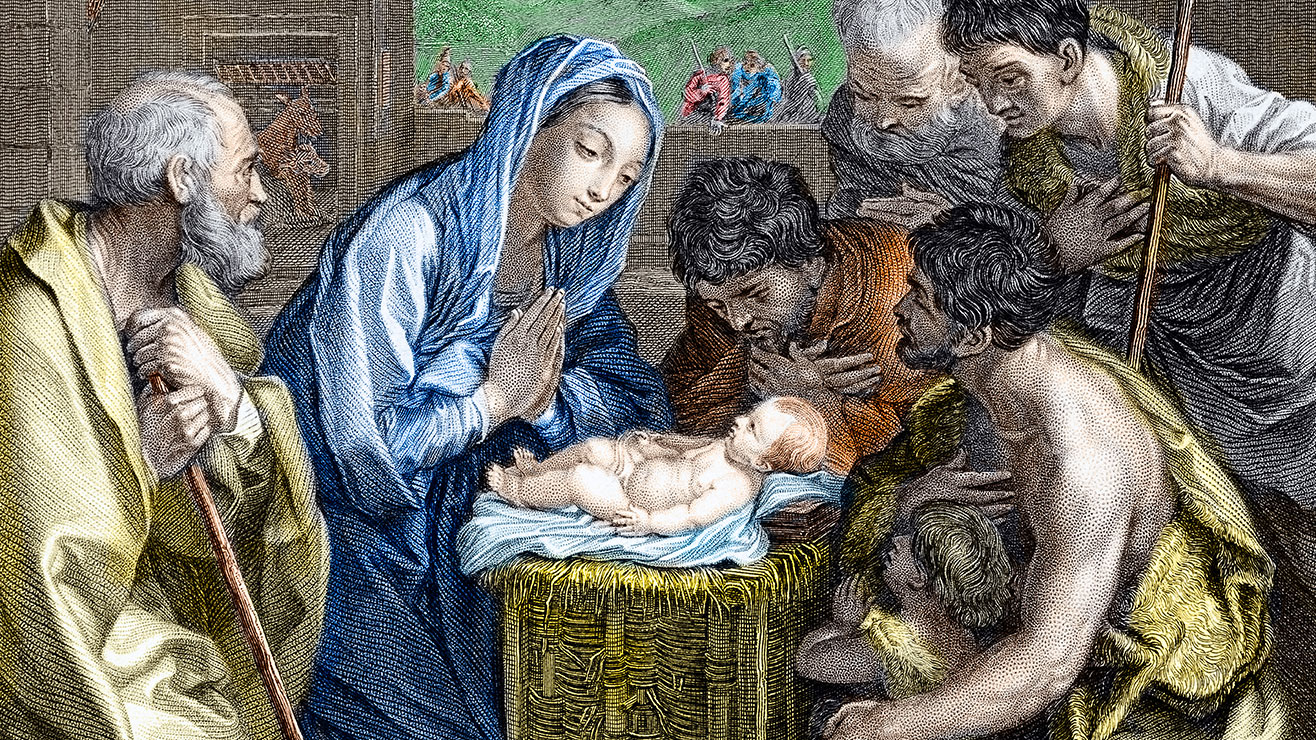big bang
Latest about big bang
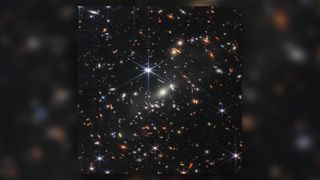
How far can the most powerful telescope see into space?
By Taylor Mitchell Brown published
Telescopes have come a long way since the first one was invented in 1608. So what's the most powerful telescope operating today, and how far can it see?
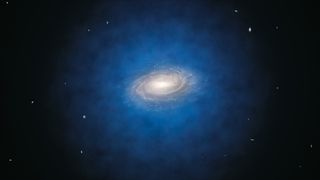
Echoes from the Big Bang suggest Earth is trapped inside a giant cosmic void, scientists claim
By Ben Turner published
Astronomers claim to have found new evidence supporting a controversial observation that our galaxy is residing in an unusually sparse region in space. If it's correct, it could rewrite cosmology.
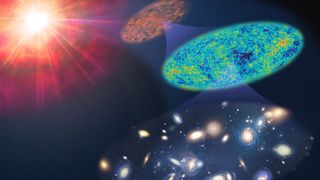
Did light exist at the beginning of the universe?
By Charles Q. Choi published
Was it dark after the Big Bang, or did light shine immediately?
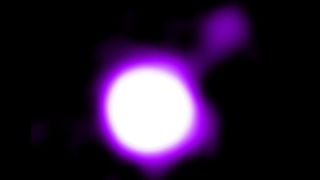
Monster black hole jet from the early universe is basking in the 'afterglow' of the Big Bang
By Harry Baker published
NASA's Chandra X-ray Observatory has captured a striking image of a distant quasar from the "cosmic noon," including a giant energy jet "being illuminated by the leftover glow from the Big Bang itself."
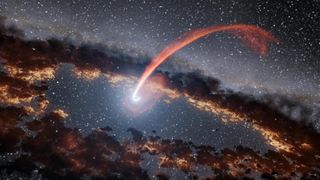
Astronomers discover most powerful cosmic explosions since the Big Bang
By Sharmila Kuthunur published
Astronomers have discovered a new class of bright, long-lasting cosmic explosions that offer a new probe into studying the universe's most distant black holes.
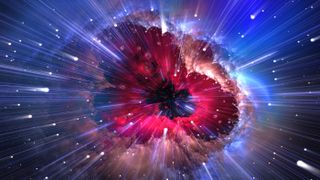
'People thought this couldn't be done': Scientists observe light of 'cosmic dawn' with a telescope on Earth for the first time ever
By Ben Turner published
For the first time, astronomers have used a ground-based telescope to observe polarized microwave light from the universe's earliest epoch. Their observations could give them a better understanding of how the universe evolved.
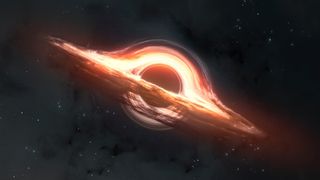
What if the Big Bang wasn't the beginning? New research suggests it may have taken place inside a black hole
By Enrique Gaztanaga published
Was the Big Bang really the beginning of the universe, or are we 'bouncing' between periods of expansion and contraction? A new theory makes testable predictions.
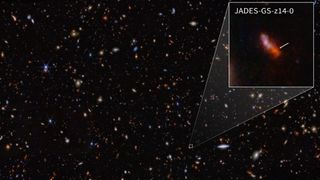
James Webb telescope breaks own record, discovering farthest known galaxy in the universe
By Skyler Ware published
The James Webb Space Telescope has broken its own record once again, spotting the most distant, early galaxy in the known universe. The new contender is MoM-z14, a galaxy visible just 280 million years after the Big Bang.

'Beauty' particle discovered at world's largest atom smasher could unlock new physics
By Ben Turner published
Why matter dominates over antimatter in our universe has long been a major cosmic mystery to physicists. A new finding by the world's largest particle collider has revealed a clue.
Get the world’s most fascinating discoveries delivered straight to your inbox.


![A family portrait of galaxies from the CRISTAL survey. Red shows cold gas traced by ALMA’s [CII] observations. Blue and green represent starlight captured by the Hubble and James Webb Space Telescopes](https://cdn.mos.cms.futurecdn.net/eVukmgPN8vVBokz2SrUwMV-320-80.png)
